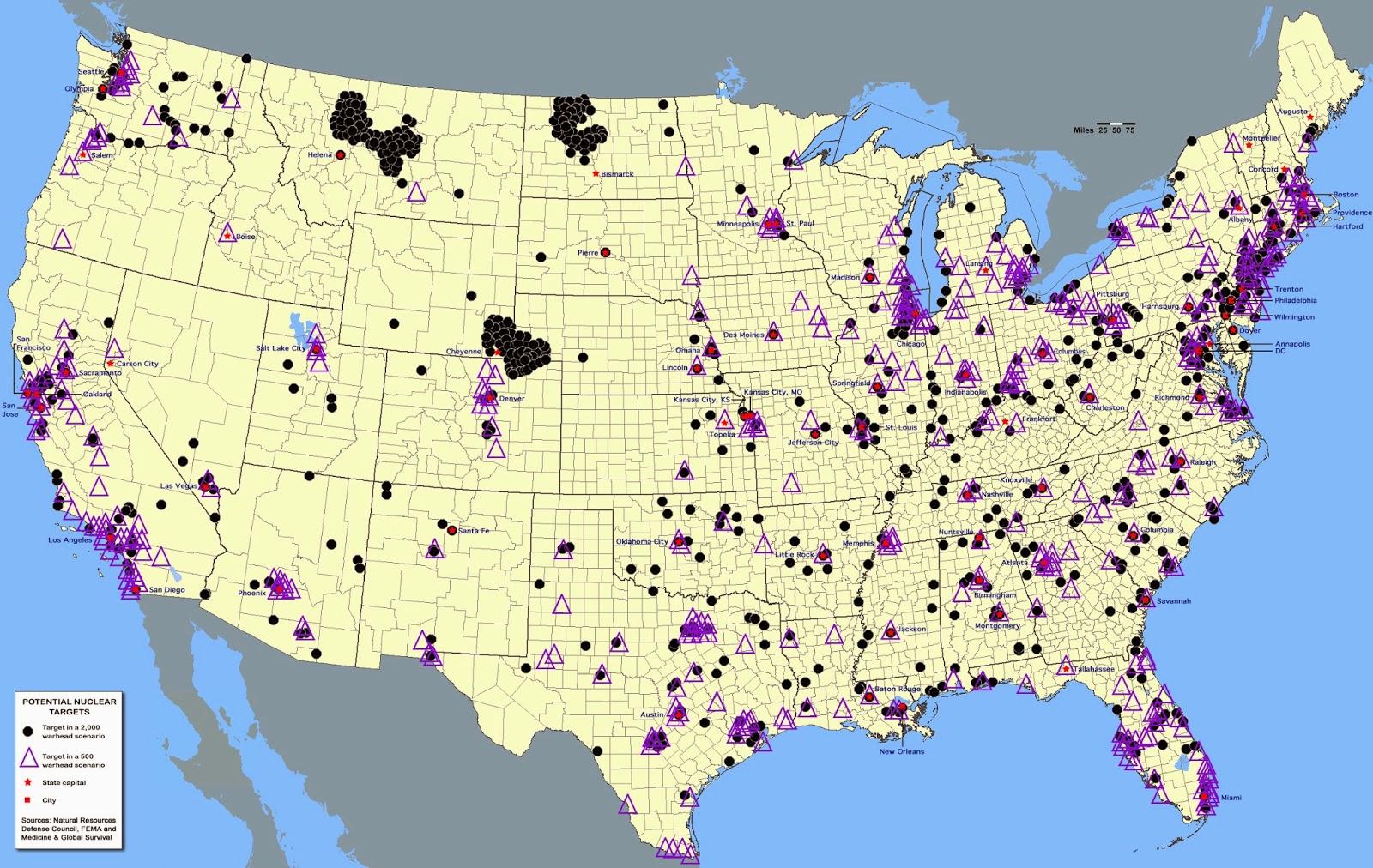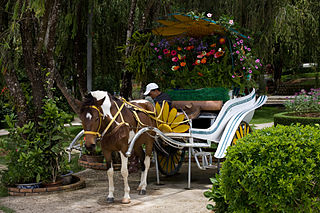In the eighth installment of Where to Live, we’re going to take a look at one threat that is very, very unlikely and yet would be catastrophic if it came to fruition: an all-out intercontinental nuclear attack.
While I’m not quite old enough to remember Duck-and-Cover drills in school, I do remember hearing that because of its world-class port facilities, my home town was #7 on the Russkies’ hit list. I don’t know if that was true or even how the good folks of Duluth managed to get a copy of the USSR playbook,* but the bombs have to fall somewhere, and it’s likely that they would fall where they’ll do the Russians the most good, or at least do us the most harm.
One advantage of modern technology is that nuclear bombs are a lot cleaner now that they were when Fat Man and Little Boy toured Japan in the summer of ’45. While they are more powerful, they will likely dissipate more quickly and do less damage to stuff outside the immediate blast zone. Unless they hit a nuclear power plant, then hooo, buddy. But as Joel Skoussen once said, if you’re in a blast zone, don’t build a better bomb shelter, move!
That’s really the only plan for threats this catastrophic. You either ignore them or you get out of their way. If you don’t think the Chinese are going to bomb out our silos in a first strike and you like western Nebraska, you’re probably fine to live there. If you think they might and the idea of building a bigger bomb shelter keeps you awake at night, well, there are lots of other places that look like western Nebraska that don’t have targets all over the place.
I do note on this map that, other than the three rural areas saturated with black, bomb targets are basically population centers because those are usually industrial centers. While I’m skeptical that the Russians will start a surprise bombing campaign in all these cities simultaneously – meaning you’ll have time to escape most of them – there remain plenty of other reasons to avoid high population areas.
* Even this map is not necessarily from that playbook.

Where to Live VIII – Nuclear Targets
5 Comments
Leave a Reply
Latest from Family

“Joseph” by Charles Kingsley
Editor’s note: The following is extracted from The Works of Charles Kingsley, Vol. 25 (published 1885). (Preached on the Sunday before the Wedding of the Prince of Wales. March 8th, third Sunday

Fly, Fly Dear Friend
It is with heavy heart that we report that our good friend and MOTW Poet Laureate, Ian McLeod, has passed away. He was too young, and he will be dearly missed. Offer

You Can’t Have Both Feminism and Chivalry
If women are not weaker than men there is zero reason to “protect” or “let them go first” or “open the door for them.” Now because I’m dead set against feminism, I

A Place for Everyone
If you ever played any team sports, you’ll be familiar with motivational quotes. Successories kicked things off in 1985 as a catalog company. There are entire campaigns and web sites devoted to

Church Home
That older single lady with the grey hair and quirky dress. The men stuffing themselves into old suits a size and a half too small or the old men whose suits now




5
From the looks of the map, about half the country would perish in a nuclear exchange. That would leave us with 150 million people…the same population we had in the late 1950s. If would also pretty well destroy all the bastions of liberalism which have been plaguing us for a long time. Hmm. It might be worth it…
El Borak, i would be interested in knowing your thoughts on living in proximity to a military base?
My gut would say it depends on the threats you expect. If you expect danger TO the base, then obviously living near it is not good. Missiles, bombs, all that stuff… if you expect it’s going to be a target, probably best to stay away.
If you expect danger FROM the base, then it would depend upon your relationship with the people in it, i.e. are they a greater danger to you or to your enemies?
A good example might be the Missouri Kansas border during the Civil War. If you were a Union guy on the Kansas side, nearby soldiers were your protection (however faulty) from Quantrill, Bloody Bill, Gerorge Todd, even old Sterling Price. If you were a Southern man on the Missouri side, those same soldiers were your worst enemy. If you were a Union guy on the Missouri side, they might be either, depending upon how much your property appealed to them, as many Kansas soldiers were abolitionists first and Unionists second. They might come to your aid with Quantrill in the area and then free all your slaves. Then again, you could get rich buying ‘liberated’ livestock from those same soldiers…
I expect that in a real meltdown, current bases might be something of ghost towns… soldiers are going to put to work in LA or New Orleans rather than ranging about Junction City Kansas or Colorado Springs.
On the other hand, they have to be *somewhere* in numbers. If they are near you in numbers, and they need what you have, are they more likely to buy it or steal it?
4.5